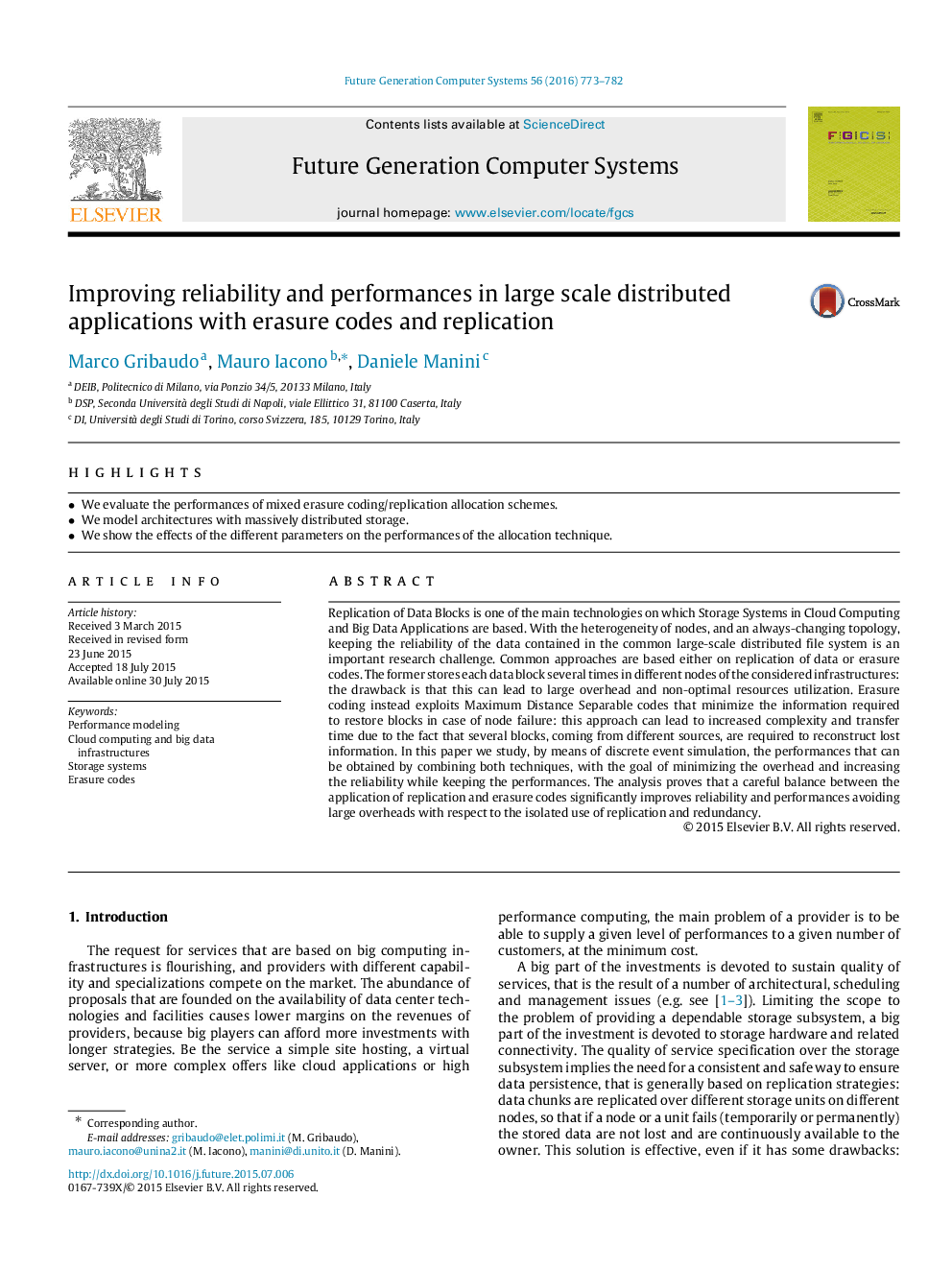| Article ID | Journal | Published Year | Pages | File Type |
|---|---|---|---|---|
| 424932 | Future Generation Computer Systems | 2016 | 10 Pages |
•We evaluate the performances of mixed erasure coding/replication allocation schemes.•We model architectures with massively distributed storage.•We show the effects of the different parameters on the performances of the allocation technique.
Replication of Data Blocks is one of the main technologies on which Storage Systems in Cloud Computing and Big Data Applications are based. With the heterogeneity of nodes, and an always-changing topology, keeping the reliability of the data contained in the common large-scale distributed file system is an important research challenge. Common approaches are based either on replication of data or erasure codes. The former stores each data block several times in different nodes of the considered infrastructures: the drawback is that this can lead to large overhead and non-optimal resources utilization. Erasure coding instead exploits Maximum Distance Separable codes that minimize the information required to restore blocks in case of node failure: this approach can lead to increased complexity and transfer time due to the fact that several blocks, coming from different sources, are required to reconstruct lost information. In this paper we study, by means of discrete event simulation, the performances that can be obtained by combining both techniques, with the goal of minimizing the overhead and increasing the reliability while keeping the performances. The analysis proves that a careful balance between the application of replication and erasure codes significantly improves reliability and performances avoiding large overheads with respect to the isolated use of replication and redundancy.
